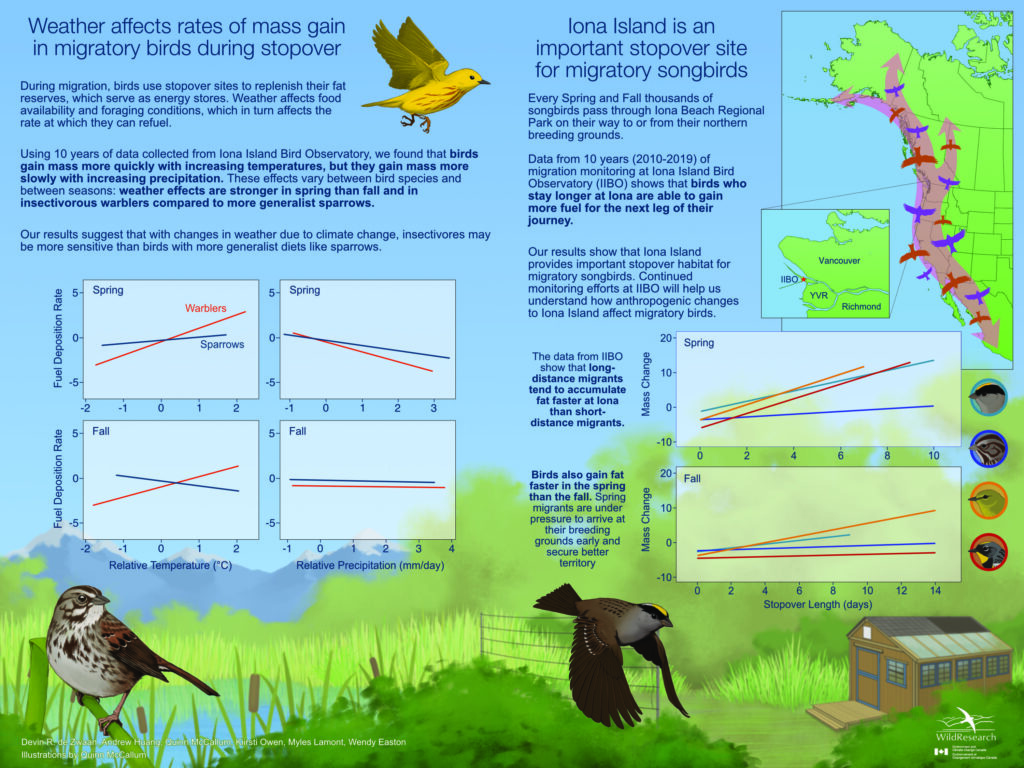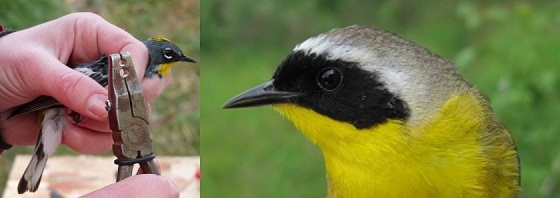Migration Monitoring
Widespread monitoring programs, such as the Breeding Bird Survey and Christmas Bird Count are used to monitor population trends. Many species of neotropical migrants, however, breed and winter in areas that are relatively inaccessible and are covered by few birders. Standardized methods of monitoring birds on migration have been developed to help track population trends for many of these species. These methods include banding and daily counts to create a daily estimated total of the migrants present each morning during migration. The core dates of our Spring Migration Monitoring Program extend from mid April to end of May, and our Fall Migration Monitoring Program from late August to early October
There are five stations that monitor fall migration across BC, however no stations track spring migration. In 2010 the Iona Island Bird Observatory initiated a Fall Migration Monitoring Program, and followed that up with a Spring Migration Monitoring Program in 2011. These programs will help us better understand the population dynamics of migratory birds in BC and determine how these species use Iona Beach Regional Park.
In 2022, biologists from WildResearch and Environment and Climate Change Canada analyzed data collected over the first 10 years of migration monitoring at IIBO to understand how different species use Iona Island as a stopover site. They found that rates of mass gain were higher in insectivorous warblers, during spring migration, and in long-stance migrants. Furthermore, temperature, precipitation, habitat productivity, and density-dependent factors strongly influenced mass gain, particularly for insectivores during spring migration. This study was published in the American Ornithological Society journal Ornithology in October of 2022, and can be found here.

